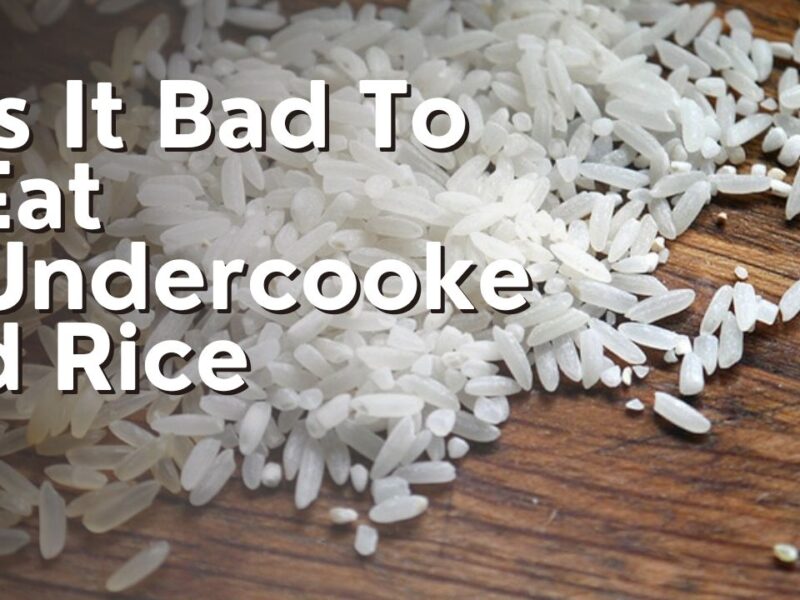I’ve always wondered if green peppers are good for dogs. As a dog owner, I want to make sure I provide my furry friend with a balanced and nutritious diet.
Green peppers are a popular vegetable in my household, and I often find myself wondering if it’s safe to share them with my canine companion. In this article, I will explore the nutritional benefits of green peppers for dogs, as well as any potential risks and considerations.
I will also provide tips on how to safely incorporate green peppers into your dog’s diet and suggest alternative vegetables that can be beneficial for them.
However, it’s important to remember that every dog is different, so consulting with your veterinarian is always a wise idea when introducing new foods to your furry friend’s diet.
Let’s dive in and find out if green peppers are indeed good for dogs!
Nutritional Benefits of Green Peppers for Dogs
If you’re looking to boost your pup’s diet, green peppers are a great choice because they provide a range of nutritional benefits.
Green peppers are packed with vitamins and minerals that can contribute to your dog’s overall health. They are a great source of vitamin C, which is important for boosting the immune system and fighting off infections. Vitamin C also helps with collagen production, which is essential for healthy skin and joints. Green peppers also contain vitamin A, which is crucial for maintaining good vision and a strong immune system.
In addition to vitamins, green peppers are rich in fiber, which can aid in digestion and promote a healthy weight. The fiber content in green peppers can regulate bowel movements and prevent constipation in dogs. It can also help your pup feel full and satisfied, which can be beneficial for weight management.
Furthermore, green peppers are low in calories and fat, making them an excellent choice for dogs that need to lose weight or maintain a healthy weight. They are also a good source of antioxidants, which can help fight inflammation and reduce the risk of chronic diseases in dogs.
However, it’s important to note that while green peppers can be a healthy addition to your dog’s diet, they should be given in moderation. Too many green peppers can cause stomach upset or diarrhea in some dogs. Always consult with your veterinarian before making any significant changes to your dog’s diet.

Potential Risks and Considerations
To ensure your furry friend’s health and well-being, it’s important to be aware of any potential risks and considerations when it comes to incorporating certain foods into their diet. While green peppers can provide many nutritional benefits for dogs, there are a few things to keep in mind.
Firstly, it’s important to remember that not all dogs can tolerate green peppers. Some dogs may have digestive issues or allergies that can be aggravated by consuming this vegetable. If you’re unsure about how your dog will react to green peppers, it’s always a good idea to consult with your veterinarian before adding them to their diet.
Additionally, green peppers can be quite spicy for dogs. The capsaicin found in peppers can cause stomach upset and discomfort. If you do decide to give your dog green peppers, it’s best to start with small amounts and monitor their reaction closely.
Lastly, it’s important to remember that green peppers should only be given to dogs in moderation. While they can offer some nutritional benefits, they should not make up a large portion of their diet. Dogs require a balanced diet that includes a variety of foods to meet all their nutritional needs.
In conclusion, while green peppers can be a healthy addition to some dogs’ diets, it’s important to be aware of any potential risks and considerations. Consulting with your veterinarian and introducing them in moderation is key to ensuring your furry friend’s health and well-being.
How to Safely Incorporate Green Peppers into Your Dog’s Diet
When it comes to safely incorporating green peppers into your furry friend’s diet, there are a few tips to keep in mind. First and foremost, it’s important to remember that moderation is key. Green peppers can be a healthy addition to your dog’s diet, but they should only be given in small amounts and as an occasional treat.
Before feeding your dog green peppers, remember to remove the seeds and stem. These parts can be difficult for dogs to digest and may cause digestive issues. It’s also best to chop the green peppers into small, bite-sized pieces to prevent choking hazards.
When introducing green peppers to your dog’s diet, start with a small amount and monitor their reaction. Some dogs may have allergies or sensitivities to certain foods, including green peppers. If you notice any signs of discomfort, such as vomiting, diarrhea, or excessive gas, stop feeding them green peppers immediately and consult with your veterinarian.
Lastly, remember that green peppers should never be the main component of your dog’s diet. They should always be offered as a supplement to a balanced and nutritious meal. Consult with your veterinarian to determine the appropriate portion size and frequency of feeding green peppers to your furry friend.
By following these tips, you can safely incorporate green peppers into your dog’s diet and provide them with a tasty and nutritious treat.
Alternative Vegetables for Dogs
Carrots, cucumbers, and broccoli are alternative vegetables that can be safely incorporated into a dog’s diet.
I have found that my dog enjoys these veggies as a healthy and low-calorie snack.
Carrots are great for promoting dental health, cucumbers are hydrating and refreshing, and broccoli is packed with essential vitamins and minerals.
Carrots
Did you know that your furry friend can enjoy the crunchy goodness of carrots as a healthy snack?
Carrots are not only tasty, but they also provide several health benefits for dogs. These orange veggies are packed with vitamins and minerals, including vitamin A, which promotes good vision and a healthy immune system. They are also a great source of fiber, which aids in digestion and can help keep your pup’s weight in check.
Additionally, carrots can help improve dental health by cleaning your dog’s teeth and freshening their breath. When feeding carrots to your dog, make sure to cut them into small, bite-sized pieces to prevent choking.
So, next time you’re munching on a carrot, why not share the goodness with your furry companion?
Cucumbers
Cucumbers can add a refreshing crunch to your furry friend’s snack time, providing a cool and hydrating treat. As a dog owner, I have found that cucumbers are a great low-calorie option for my pup.
Not only are they packed with water, which helps keep dogs hydrated, but they also offer a satisfying texture that can help satisfy their chewing instincts. I usually slice cucumbers into thin rounds and give them to my dog as a healthy snack.
However, it’s important to note that some dogs may have difficulty digesting cucumbers, so it’s best to introduce them in small quantities and monitor their reaction. Additionally, make sure to remove the cucumber seeds, as they can be a choking hazard.
Overall, cucumbers are a tasty and refreshing addition to my dog’s diet.
Broccoli
I’ve talked about cucumbers, and now let’s move on to broccoli. As a dog owner, I often wonder if it’s safe for my furry friend to eat this green vegetable. Well, the good news is that broccoli can be a healthy addition to a dog’s diet in moderation. It’s packed with vitamins, minerals, and fiber, which can promote good digestion and strengthen the immune system. However, it’s important to note that broccoli should always be cooked before feeding it to your dog, as raw broccoli can be difficult for them to digest. Additionally, the florets should be cut into small, bite-sized pieces to prevent choking hazards. Remember, always consult with your veterinarian before introducing any new food into your dog’s diet.
Here’s a helpful table that shows the nutritional content of broccoli:
| Nutrient | Amount per 100g |
|---|---|
| Calories | 34 kcal |
| Protein | 2.8g |
| Carbohydrate | 6.6g |
| Fiber | 2.6g |
| Vitamin C | 89.2mg |
Consult Your Veterinarian
Before introducing any new food to your dog’s diet, it’s important to consult your veterinarian. They can provide insight into your dog’s individual dietary needs and whether green peppers would be a suitable addition.
Additionally, if your dog has any existing health conditions, your veterinarian can advise if green peppers may have any potential risks or benefits.
Professional guidance is crucial to ensure that you are making the best choices for your dog’s overall health and well-being.

Individual Dietary Needs
Make sure you understand your furry friend’s individual dietary needs, so you can provide them with the best possible care. When it comes to green peppers, it’s important to consider your dog’s tolerance and any existing health conditions.
While green peppers are generally safe for dogs to eat, they can cause digestive issues in some pups. It’s best to introduce green peppers in small amounts and monitor your dog for any adverse reactions. Additionally, be mindful of the way you prepare the peppers. Avoid using seasonings or cooking oils that may be harmful to dogs.
Always consult with your veterinarian before making any changes to your dog’s diet, as they can provide guidance tailored to your pet’s specific needs.
Existing Health Conditions
When it comes to our furry friends, understanding their existing health conditions is crucial for providing them with the best possible care. Just like humans, dogs can have a variety of health issues that may require special dietary considerations. For example, some dogs may have allergies or sensitivities to certain foods, while others may have specific medical conditions that require a restricted diet. It is important to consult with a veterinarian to determine the best course of action for your dog’s individual needs. In the meantime, here is a table to help you understand some common health conditions and their corresponding dietary recommendations:
| Health Condition | Dietary Recommendation |
|---|---|
| Food Allergies | Avoiding the allergen |
| Diabetes | Low-carbohydrate, high-fiber diet |
| Kidney Disease | Low-protein, low-phosphorus diet |
| Pancreatitis | Low-fat, easily digestible diet |
| Dental Issues | Soft food, dental chews, brushing |
Remember, always consult with your veterinarian before making any changes to your dog’s diet.
Professional Guidance
After researching the existing health conditions that dogs may have, I wanted to seek professional guidance regarding whether green peppers are good for them.
I reached out to a veterinarian who specializes in canine nutrition. According to the vet, while green peppers are generally safe for dogs to eat, there are a few things to consider. Dogs with certain health issues, such as pancreatitis or gastrointestinal problems, may not tolerate green peppers well. Additionally, it’s important to remove the seeds and stems, as they can be a choking hazard.
The vet recommended introducing green peppers in moderation and monitoring for any adverse reactions. They also stressed the importance of consulting with a vet before making any significant changes to a dog’s diet.
Overall, seeking professional guidance is crucial to ensure that green peppers can be safely incorporated into a dog’s diet.
Frequently Asked Questions
Can I feed my dog green peppers every day?
Feeding your dog green peppers every day can be a healthy choice. They are low in calories, high in vitamins, and can provide dogs with essential nutrients. However, it’s important to introduce them gradually and monitor your dog for any adverse reactions.
What are the potential risks of feeding green peppers to my dog?
Feeding green peppers to dogs may pose potential risks. They can cause stomach upset, diarrhea, or allergic reactions. It’s important to introduce new foods gradually and monitor your dog for any adverse effects.
Are there any specific considerations I should keep in mind when giving green peppers to my dog?
When giving green peppers to my dog, I should keep in mind that they should be given in moderation as a treat, not as a primary diet. Also, I should remove the seeds and stems as they can be difficult to digest.
What are some alternative vegetables I can include in my dog’s diet besides green peppers?
Some alternative vegetables I can include in my dog’s diet are carrots, sweet potatoes, and broccoli. These vegetables provide essential nutrients and are safe for dogs to consume in moderation.
Is it necessary to consult a veterinarian before adding green peppers to my dog’s diet?
Consulting a veterinarian before adding green peppers to my dog’s diet is necessary. They can provide guidance on whether it is suitable for my dog’s specific needs and help ensure their overall health and well-being.
Conclusion
In conclusion, green peppers can be a nutritious addition to your dog’s diet. They are low in calories and high in vitamins A and C, providing numerous health benefits.
However, it is crucial to introduce them slowly and in moderation, as some dogs may have difficulty digesting them. Always consult with your veterinarian before making any changes to your dog’s diet to ensure it is suitable for their specific needs.
Remember, a balanced and varied diet is key to keeping your furry friend healthy and happy.


